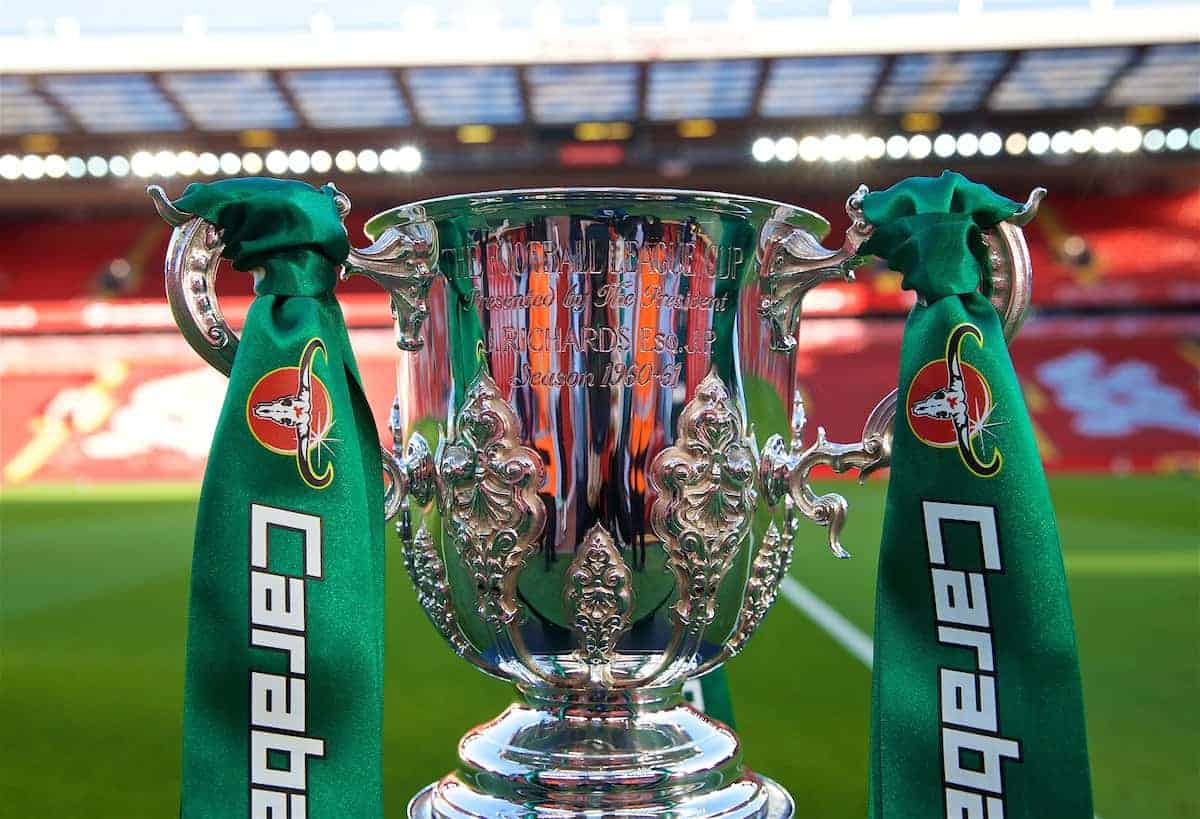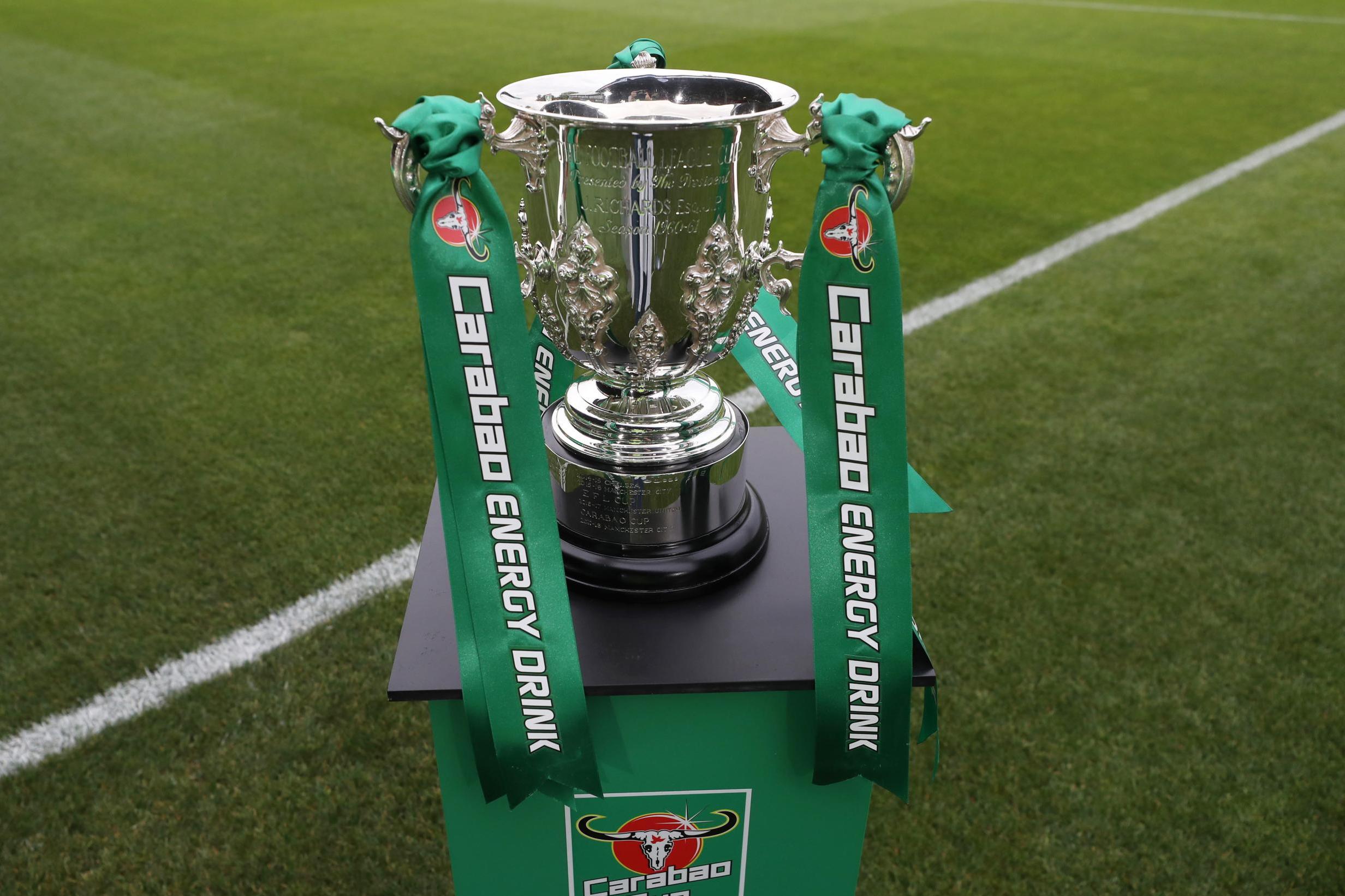What is the League Cup? This question unveils a rich history of English football, a competition boasting thrilling upsets, legendary players, and significant financial implications for participating clubs. From its humble beginnings to its current format, the League Cup, also known as the EFL Cup, has cemented its place as a key part of the English football calendar, offering a unique blend of drama and prestige.
This tournament features teams from various tiers of the English football league system, creating a unique dynamic where established giants can face off against ambitious underdogs. The competition’s structure, featuring group stages and knockout rounds, ensures a high level of excitement and unpredictable outcomes, making it a compelling spectacle for fans and a crucial test for teams aiming for silverware.
Enhance your insight with the methods and methods of league one corner stats.
The League Cup’s impact extends beyond the pitch, significantly influencing a team’s overall season performance and generating substantial revenue through broadcasting rights and sponsorship deals.
League Cup Overview
The EFL Cup, commonly known as the League Cup, is a prestigious English football competition that has been a staple of the domestic calendar for over six decades. Its history is rich with memorable moments, dramatic upsets, and the rise of many footballing giants. The tournament provides a platform for both established and emerging teams to showcase their talent and compete for silverware.
History of the League Cup
Established in 1960, the League Cup initially featured only teams from the Football League (now the English Football League, EFL). The competition’s early years saw fluctuating participation and interest, but it gradually gained traction, becoming a significant part of the English football landscape. Over time, the tournament evolved, adjusting its format and rules to keep pace with the changing dynamics of the sport.
Current League Cup Format
The League Cup follows a knockout format. Teams from the EFL Championship, League One, and League Two, along with the Premier League teams, participate. The competition typically begins with early rounds featuring lower-league teams, gradually progressing to involve higher-league teams. The draw is largely random, creating potential for captivating early-round clashes between teams from different leagues. The tournament culminates in a final match at Wembley Stadium.
Past League Cup Winners
The following table lists all past winners of the League Cup, chronologically organized.
| Team | Year | Score | Opponent |
|---|---|---|---|
| Aston Villa | 1961 | 2-0 | Rotherham United |
| Birmingham City | 1963 | 2-1 | Aston Villa |
| Manchester City | 2023 | 2-1 | Newcastle United |
Participating Teams
Eligibility and selection for the League Cup are crucial aspects determining the competition’s composition and competitiveness. The process ensures a blend of established and up-and-coming teams, creating an exciting and unpredictable tournament.
Team Eligibility and Selection
All clubs from the Premier League and the three divisions of the English Football League (Championship, League One, and League Two) are eligible to participate in the League Cup. The selection process involves a draw that typically pairs teams from different leagues in the early rounds, creating opportunities for David-versus-Goliath matchups.
Consistently Successful Teams
Certain teams have demonstrated consistent success in the League Cup throughout its history. Liverpool, Manchester City, Aston Villa, and Manchester United are among the clubs that have frequently reached the latter stages of the competition and secured multiple titles. Their consistent performance highlights their depth of squad and tactical flexibility.
Rules and Regulations
The League Cup operates under a set of rules that govern gameplay, tie-breakers, and other aspects of the competition. These rules ensure fair play and a structured competition, differentiating it from other tournaments in certain aspects.
Specific League Cup Rules
Matches are played over 90 minutes. If scores are level at the end of normal time, extra time (two 15-minute periods) is played. If the scores remain tied after extra time, a penalty shootout determines the winner. The rules regarding substitutions and yellow/red cards generally align with standard FIFA regulations. However, specific rules regarding squad size or player eligibility might vary slightly compared to league matches.
Comparison with Other Competitions
Compared to the FA Cup, the League Cup features a slightly different format and team eligibility. The FA Cup is more open, with non-league teams also participating, whereas the League Cup focuses on teams from the Premier League and EFL. Both competitions, however, are valued for their ability to provide opportunities for lesser-known teams to compete against top-flight clubs.
Significance and Impact
Winning the League Cup holds significant importance for participating teams, influencing their overall season and standing. The trophy represents prestige and success, and it carries tangible benefits.
Importance of League Cup Success
/origin-imgresizer.eurosport.com/2019/10/31/2707566-55973350-2560-1440.jpg)
Winning the League Cup provides a team with a trophy, boosting morale and confidence. It also offers valuable match practice and experience, especially for younger players. Furthermore, success in the League Cup can contribute positively to a team’s overall standing and attract potential sponsors and investments.
Impact on Team Season, What is the league cup
A successful League Cup campaign can have a positive ripple effect on a team’s performance in other competitions. The momentum gained from winning matches and advancing through rounds can translate to improved results in the league and other cup competitions. Conversely, a disappointing campaign can have a demoralizing effect.
Notable Moments and Matches: What Is The League Cup
The League Cup has witnessed many memorable matches and moments throughout its history. These moments have shaped the narrative of the competition and etched themselves into the memories of fans.
Memorable League Cup Matches
- The 1967 final between Queens Park Rangers and West Bromwich Albion, a 3-2 thriller decided in extra time.
- Manchester City’s comeback victory against Tottenham Hotspur in the 2021 final.
- Several upsets involving lower-league teams defeating Premier League giants in the early rounds.
Timeline of Significant Moments
A chronological account of significant moments, including notable upsets and surprising results, would illustrate the evolution and drama of the League Cup.
Memorable League Cup Final Narrative
A detailed account of a specific memorable League Cup final, such as the 2012 final between Liverpool and Cardiff City, would highlight the drama, tension, and significance of the event. This could include details about the goals scored, key moments in the match, and the overall atmosphere of the game.
Financial Aspects
The League Cup generates revenue through various channels, influencing the financial landscape of participating teams. Prize money, sponsorships, and broadcasting deals contribute significantly to the financial implications of the competition.
Prize Money and Financial Implications
Winning the League Cup comes with a substantial prize money reward. Furthermore, each round of participation generates revenue for participating teams. This financial reward can be crucial, especially for teams in the lower leagues.
Sponsorship and Broadcasting Deals
The League Cup benefits from significant sponsorship and broadcasting deals. These agreements contribute significantly to the overall financial health of the competition and provide additional revenue streams for participating teams.
Comparison with Other Competitions
The League Cup’s significance and structure can be better understood by comparing it with other domestic cup competitions in England and internationally. Such a comparison highlights the unique characteristics and relative importance of the League Cup.
League Cup vs. Other Domestic Cups
Compared to the FA Cup, the League Cup features a more structured format with predetermined pairings, whereas the FA Cup uses a random draw, creating more potential for upsets. Internationally, similar domestic cup competitions exist in many countries, each with its own unique format and significance.
Relative Importance
While the League Cup holds significant prestige, its relative importance is often viewed as slightly lower than that of the FA Cup or the league title. However, for many teams, especially those outside the top flight, the League Cup provides a realistic chance of winning silverware and achieving national recognition.
Visual Representation
The League Cup is visually represented through its trophy, matchday atmosphere, and branding. These elements contribute to the overall identity and perception of the competition.
The League Cup Trophy

The League Cup trophy is a detailed description of the trophy’s design, materials (e.g., silver, gold plating), and historical significance, including any notable changes or updates to its design over the years. Its visual presentation is a key symbol of the competition’s prestige.
Matchday Atmosphere
A vivid description of the typical sights, sounds, and emotions experienced during a League Cup match would include details about the crowd, the chants, the excitement of the game, and the overall atmosphere of the event. This would highlight the passion and energy surrounding the competition.
Visual Branding and Imagery
The League Cup’s visual branding and imagery, including logos, colors, and associated graphics, contribute to its overall identity and visual appeal. A detailed description of these elements would highlight their role in shaping the competition’s image and branding.
The League Cup, far from being a mere secondary competition, stands as a testament to the enduring appeal of English football. Its captivating blend of established powerhouses and emerging talents, its unpredictable nature, and the substantial financial rewards all contribute to its enduring popularity. For players, managers, and fans alike, the League Cup offers a unique experience, providing a platform for memorable moments and a chance to etch one’s name into footballing history.
Its legacy continues to evolve, promising many more seasons of captivating drama and unexpected triumphs.

